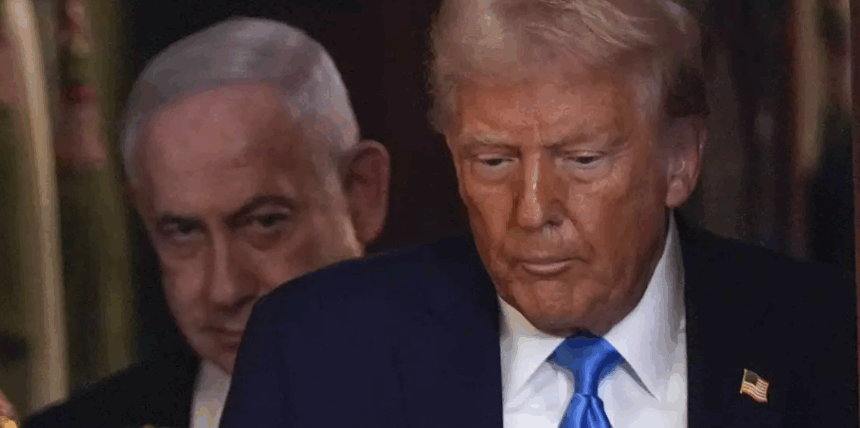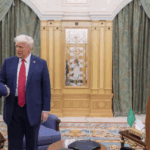Summary & Additional Remarks by Geopolist | Istanbul Center for Geopolitics:
Shlomo Ben-Ami, a former Israeli foreign minister and a seasoned commentator on Middle East affairs, writes that Donald Trump’s second-term foreign policy marks a decisive break from his earlier unwavering support for Israeli Prime Minister Benjamin Netanyahu. This shift, Ben-Ami argues, is not just symbolic—it reflects a broader realignment in U.S. strategy that could leave Israel increasingly marginalized in the new regional order.
1. From Personal Alliance to Political Divorce
Ben-Ami outlines how Trump and Netanyahu, once portrayed as ideological twins and strategic partners, are now growing apart. In Trump’s first term, the U.S. administration made a series of pro-Israel moves—recognizing Jerusalem as Israel’s capital, endorsing Israeli sovereignty over the Golan Heights, and launching the Abraham Accords. Netanyahu was a central beneficiary and participant in this vision.
But in Trump’s second term, Israel is no longer at the center of the agenda. Trump’s recent Middle East tour conspicuously excluded Israel, focusing instead on deepening ties with the Gulf states and promoting what he calls a “Middle East Riviera”—a bold reimagining of Gaza as a “freedom zone” modeled on free-market enclaves like Singapore or Dubai, but under U.S. control.
2. Trump’s “Freedom Zone” for Gaza: Strategic or Fantastical?
A key flashpoint in this divergence is Trump’s Gaza initiative. Rather than consulting Israel—or even involving it—Trump proposed turning Gaza into a depoliticized zone of economic experimentation. Backed by Gulf funding and possibly administered with U.S. security oversight, the plan envisions rebuilding Gaza as a technocratic, non-nationalistic space.
Ben-Ami notes the strategic gamble: Trump sees Gaza as a gateway for U.S. economic and diplomatic engagement in the region, independent of Israel’s political entanglements. In contrast, Netanyahu views Gaza as an irredeemably hostile territory that must be managed through force and deterrence. The two visions are fundamentally incompatible.
3. A Shift from Values to Transactions
According to Ben-Ami, Trump’s evolving doctrine abandons traditional alliances in favor of transactional diplomacy. For Trump, Israel is no longer a unique ally, but one state among many in a competitive marketplace of strategic value. His pivot toward Saudi Arabia, the UAE, and even tacit coordination with Egypt and Jordan on Gaza, reflects this realpolitik logic.
This marks a radical departure from the historical bipartisan U.S. consensus of prioritizing Israel’s security and regional dominance. Ben-Ami suggests that Netanyahu, who built his legacy on the strength of the U.S.-Israel alliance, now finds himself diplomatically isolated, with few levers of influence in Washington.
4. Implications for Israel and the Region
Ben-Ami warns that this estrangement has major consequences:
- For Israel, it signals that its traditional monopoly over U.S. Middle East policy is eroding.
- For the Palestinians, it may open a new chapter—however flawed—where Gaza is reimagined outside the logic of permanent occupation.
- For the Arab Gulf states, it reflects their emergence as Trump’s preferred regional interlocutors, replacing Israel as Washington’s main partner.
More broadly, Ben-Ami sees this as the beginning of a post-Netanyahu era in U.S.-Israeli relations. If Trump continues to ignore Israel’s concerns and bypass its leadership, Israeli policymakers will have to recalibrate their assumptions about unconditional U.S. support.
Key Quote:
“Trump’s new Gaza plan reflects not just a policy shift—it is a conceptual one. It treats Israel as a regional actor to be balanced, not privileged.”
Conclusion:
Shlomo Ben-Ami’s article frames Trump’s second-term strategy as a cold, transactional pivot away from Israel, one that leaves Netanyahu sidelined and exposed. This realignment could redefine not only the Israeli-American relationship, but the entire strategic architecture of the Middle East. As Trump reimagines the region through the lens of Gulf capital and U.S. oversight, Israel may find itself watching from the sidelines—a sharp fall from the privileged perch it held during Trump’s first term.
Read more here.







